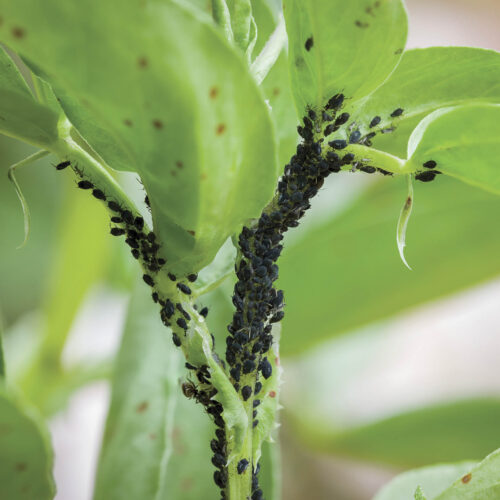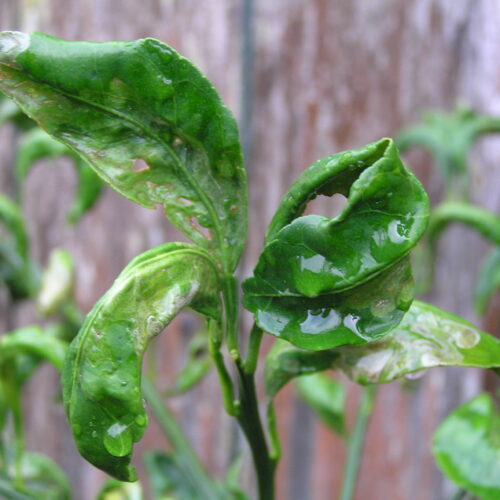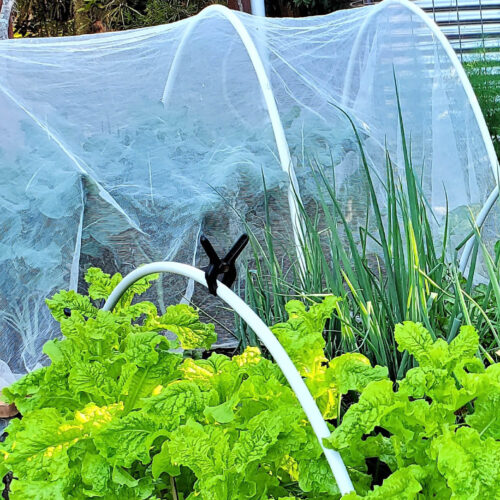Pyrethroid pesticide warning
2015-02-11T03:28:59+11:00
PENNY WOODWARD asks how safe are our ‘safe’ insecticides?
I try to never use insecticides, even organic ones. But if I have to use something I usually start with a soap based spray, then a pest oil and finally neem or pyrethrum. If using pyrethrum you should always look for a spray made from the flowers of Tanacetum cinerariifolium (see the picture) which contains pyrethrins, rather than the synthetically produced sprays that use pyrethroids. For a long time I’ve recommended that sprays based on the synthetic pyrethroids not be used because they are not organic. But new research has shown that these synthetic pesticides may cause quite serious problems. This research was published last week in the Journal of the Federation of American Societies for Experimental Biology from a collaboration between three American universities. They discovered that ‘mice exposed to the pyrethroid pesticide deltamethrin in utero and through lactation exhibited several features of ADHD’ and they went on to say that deltamethrin ‘may alter the development of the brain’s dopamine system — responsible for emotional expression and cognitive function — and increase the risk of ADHD in children’.
Deltamethrin is one of the pyrethroids that are synthetic compounds made to mimic the naturally occurring pyrethrins. It and other pyrethroids are broad-spectrum insecticides that work by interfering with a nerve cell’s ability to send a normal signal by jamming open tiny gates on the cells of pests that need to open and close rapidly to carry the message. Deltamethrin is found in a wide variety of products used in agriculture, on golf courses, gardens, and lawns, indoors, and even on pets.
Pyrethroids are longer lasting than pyrethrins which are found naturally in T. cinerariifolium flowers. Pyrethrins are commonly used in the home and garden too and have been registered for use since the 1950’s. So far they have not been shown to have the same adverse affects as pyrethroids like deltamethrin. But that may be because they haven’t been tested in the same way and my recommendation is that these should only be used as a last resort.
While ADHD is strongly suspected to have a genetic component, the researchers say that pyrethroid pesticides, including deltamethrin, may be a risk factor for ADHD and that this needs to be examined in more detail. It is interesting that in this study, male mice were more severely affected than female mice and that this is similar to the imbalance between the sexes that is seen in children with ADHD. Also the behaviours in the mice were still present when they were adults, even though they were no longer exposed to deltamethrin.
By cross-referencing health data from more than two thousand children, the researchers found that ‘children with higher pyrethroid pesticide metabolite levels in their urine were more than twice as likely to be diagnosed with ADHD’.
So although ADHD probably has a genetic component, it is also believed that environmental factors may have a developmental impact on this behavioural condition. The increased use of these supposedly ‘safe’ insecticides may go some way towards explaining the increase of ADHD in the community.
So what should you do? If you have to use insecticides, use only certified organic ones. But it is really better to use none at all and put up with some damage, letting natural predators control pests in a balanced garden environment. For more information about how chemicals in the environment are making us sick see the excellent article by Professor Marc Cohen in the current issue of Organic Gardener magazine.
To read a longer article about the research into pyrethroids go to Science Daily or the complete journal reference is:
J. R. Richardson, M. M. Taylor, S. L. Shalat, T. S. Guillot, W. M. Caudle, M. M. Hossain, T. A. Mathews, S. R. Jones, D. A. Cory-Slechta, G. W. Miller. Developmental pesticide exposure reproduces features of attention deficit hyperactivity disorder. The FASEB Journal, 2015; DOI: 10.1096/fj.14-260901






